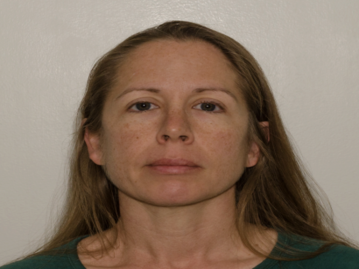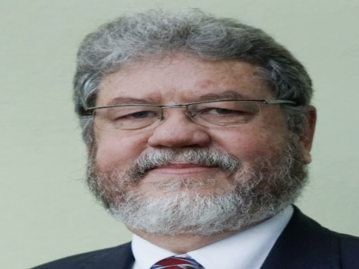Consultative Platform on Climate and Health in Africa (CAPCHA)
Background
Climate change is a global crisis with far-reaching implications for public health, and Africa stands out as a region particularly vulnerable to the adverse effects of extreme weather events linked to climate variability. This heightened susceptibility is exacerbated by an already strained healthcare system and the absence of robust early warning systems, factors partly attributed to the region’s fragile socio-economic conditions. Despite being a region that is most susceptible to the health effects of climate change and variability, many African countries have failed to effectively adapt to climate change impacts due to lack of context-specific data to inform action. Advancing the climate and health agenda in Africa will, therefore, depend on how well the linkages between research, policy, and society are strengthened in addition to tackling existing inequalities in research. While research evidence has been identified to be key in furthering sustainable development in policy documents like the 2030 United Nations Agenda and the 2063 African Union Agenda, data generated from the Global North may fail to effectively foster the much-needed transformative change in Africa. Though data from the Global North may help inform researchers, policymakers, and communities on how to address C & H issues, they may not be context-relevant, and thus the need to support and augment the capacity of African researchers to enable them to produce context-specific data for action.
At the moment, African countries appear to have national climate change policy and national adaptation plan documents that only alludes to C & H in barely a sentence. Regional adaptation plans for different countries, therefore, have to be co-developed to facilitate policy interventions. Besides, limited funding and inadequate capacity of C & H actors is also another impediment to the advancement of the climate and health agenda in Africa. The noticeable absence of climate change and health courses or fellowships offered within the various African regions further makes it difficult for interested stakeholders to access such courses and enhance their capacity. This inadequacy acts as an obstacle to the effective design and implementation of research and adaptation programs. Compounding the matter is the fact that climate change and health research are often compartmentalized across various disciplines, resulting in a fragmented landscape of specialized discussions. This compartmentalization hinders efforts to synthesize key findings aimed at identifying trends and gaps in the evidence.
Urgent action is imperative if economies are to be decarbonized and more resilient health systems developed. This can be accomplished by providing contextualized evidence to support action, leading in climate advocacy and leadership, guiding sectors that significantly affect health through their actions, and assuming responsibility for climate resilience and the imperative to decarbonize healthcare systems. Transdisciplinary research and action agenda on climate change and health can help inform evidence given the human-environmental system problems being currently experienced by society. Considering the importance of collaboration in advancing the C & H agenda, key role players have to be identified and the process has to be intentional to guarantee that regional adaptation plans can be developed for different countries.
Rationale: Why A C & H Platform
The transformation needed to address the health impacts of climate change in Africa will demand innovative approaches of mobilizing resources, working jointly, and applying knowledge. To efficiently address the diverse C & H challenges as well as the varied needs and interests of actors in the different sectors, research must be effectively interlinked with policymaking, planning, and action. The co-generation of data across disciplines is one approach that can foster such transformations. By providing timely and policy-relevant research, researchers can support evidence-based decision-making and effective implementation of climate and health policies. This can be achieved by creating platforms and networks that bring together researchers, policy-makers, and practitioners from various disciplines and sectors. Such platforms facilitate knowledge exchange, sharing of best practices, and collaboration on research and policy development. The platforms can also be used to encourage regular communication channels such as meetings, conferences, and webinars to help foster dialogue and information sharing between different stakeholders. This ensures that C & H stakeholders are up-to-date with the latest research, policy updates, and field experiences. Information on the connection between climate and health will equally be provided on the platform as most people view them separately. This can be done by sharing evidence of how climate change can affect the health sector, and similarly how the health sector can get prepared and minimize the negative effects of climate change.
Vision Statement
Building a transdisciplinary community of practice towards enhanced decision support environment on C & H research and policy in Africa
Mission Statement
Nurturing transdisciplinary science-policy engagements towards advocating for resilient and low-carbon health systems.
THE CAPCHA CONCEPT NOTE
The CAPCHA platform aims to bring together researchers, policymakers, and practitioners from various disciplines and sectors working on the climate and health nexus. The platform will facilitate knowledge exchange, sharing of best practices, and collaboration on research and policy development. The platform will also be used to encourage regular communication channels such as meetings, conferences, and webinars to help foster dialogue and information sharing between different stakeholders. This will ensure that C & H stakeholders are up-to-date with the latest research, policy updates, and field experiences. Information on the connection between climate and health will equally be provided on the platform as most people view them separately.
Read more of the concept note HERE
AFRICA CLIMATE AND HEALTH STAKEHOLDER DISTRIBUTION DATABASE
<iframe src=”https://docs.google.com/spreadsheets/d/e/2PACX-1vTQtXvVpCzeKEleRhtr8V0JjfHoeRwK4bM2Ew4vwMHmCY3JqGnxwhR4ww7gg6Tomw/pubhtml?widget=true&headers=false”></iframe>
ADVISORY GROUP
C & H Advisory Board Members Profiles
 Dr Modi Mwatsama.
Dr Modi Mwatsama.
Welcome Trust Representative Dr Modi is the Head of Capacity and Field Development, Climate & Health at the Wellcome Trust where she is leading the programme of research to advance sciencebased solutions for climate change and health. She joined Wellcome in 2018 as Senior Science Lead for Food Systems in the Our Planet, Our Health Programme. She has a particular interest in agenda-setting and implementation research as well as research approaches which involve co-production with policymakers and practitioners and help to strengthen capacity in low- and middle-income countries. Prior to Wellcome, Modi was Director of Policy and Global Health at the UK Health Forum. She spent over 15 years focused on research, advocacy, and policy-development for the prevention of noncommunicable diseases (NCDs) in UK, European and WHO/UN institutions. As NCDs are the main health benefits of climate change mitigation actions to reduce greenhouse gas emissions, this led her to transition into Climate & Health over time. Modi was a member of the UN Food Summit’s Action Track 2 Leadership team and her advisory roles include the EAT Foundation board and BBC Rural Affairs Committee. She is a Registered Nutritionist and studied public health policy processes during her Doctorate at the London School of Hygiene and Tropical Medicine.
 Dr. Kelly Baker
Dr. Kelly Baker
Dr. Kelly Baker is an Associate Professor of Occupational and Environmental Health, and Epidemiology at the University of Iowa College of Public Health. She is a microbiologist and epidemiologist whose research aims to reduce global diarrheal disease burden by generating evidence on socio-economic, behavioral, and environmental causes of enteric pathogen transmission between humans, animals, and the environment in communities that are vulnerable to environmental pollution, and then designing and evaluating public health interventions. Her current global research portfolio includes transdisciplinary collaborative studies on urban development, climate conditions, water security and safety, clinical and environmental microbiology, foodborne and enteric disease, and the development of low-cost rapid diagnostic tests for antimicrobial resistant enteric infections. She leads the One Health science committee at the American Society for Tropical Medicine and Hygiene, is a Senior Editor for the CABI One Health journal and serves on the National Academies of Medicine Board of Global Health.
 Dr Kobus Herbst
Dr Kobus Herbst
DSI-MRC South African Population Research Infrastructure Network (SAPRIN), Kobus Herbst is the Director of the DSI-funded South African Population Research Infrastructure Network (SAPRIN). SAPRIN is hosted by the South African Medical Research Council and funds the population and health surveillance at six nodes (Agincourt, Mpumalanga; DIMAMO Limpopo, AHRI rural KZN, GRT-INSPIRED Gauteng, C-SHARP WC, USINGA urban KZN). He is a faculty member and the Director Population Science at the Africa Health Research Institute and the principal investigator of its Population Intervention Programme (PIP). He co-leads a collaboration with Evelyn Gitau responsible for the formative phase of the Africa Population Cohort Consortium. He is a member of the Scientific Steering Committee of the International HundredK Cohort Consortium (IHCC). Kobus graduated as a medical doctor from the University of Pretoria in 1979, did a masters in Bioengineering at the University of Cape Town and registered as a public health physician in 1994 following a registrarship at MEDUNSA. Kobus’s passion is information and how information management contributes to the scientific process. In particular the establishment of data repositories to curate datasets and promote the secondary use of research study data. To this end Kobus established the INDEPTH data repository in 2013 containing longitudinal demographic and cause-specific mortality data of more than 3 million individuals from 25 demographic surveillance sites in lower and middle-income countries. This work was extended in a collaborative project with researchers at LSHTM to establish a repository of longitudinal populationbased HIV sero-surveillance data from 10 sites in Africa (the Alpha network). His research goals are the use of large longitudinal population studies in resource limited settings to explore causes of mortality and obstacles to access care and support through the linkage of population data with service utilisation data; and how to fairly and responsibly improve access by data users to such population data resources. A list of his research publications can be found at: ResearchGate
